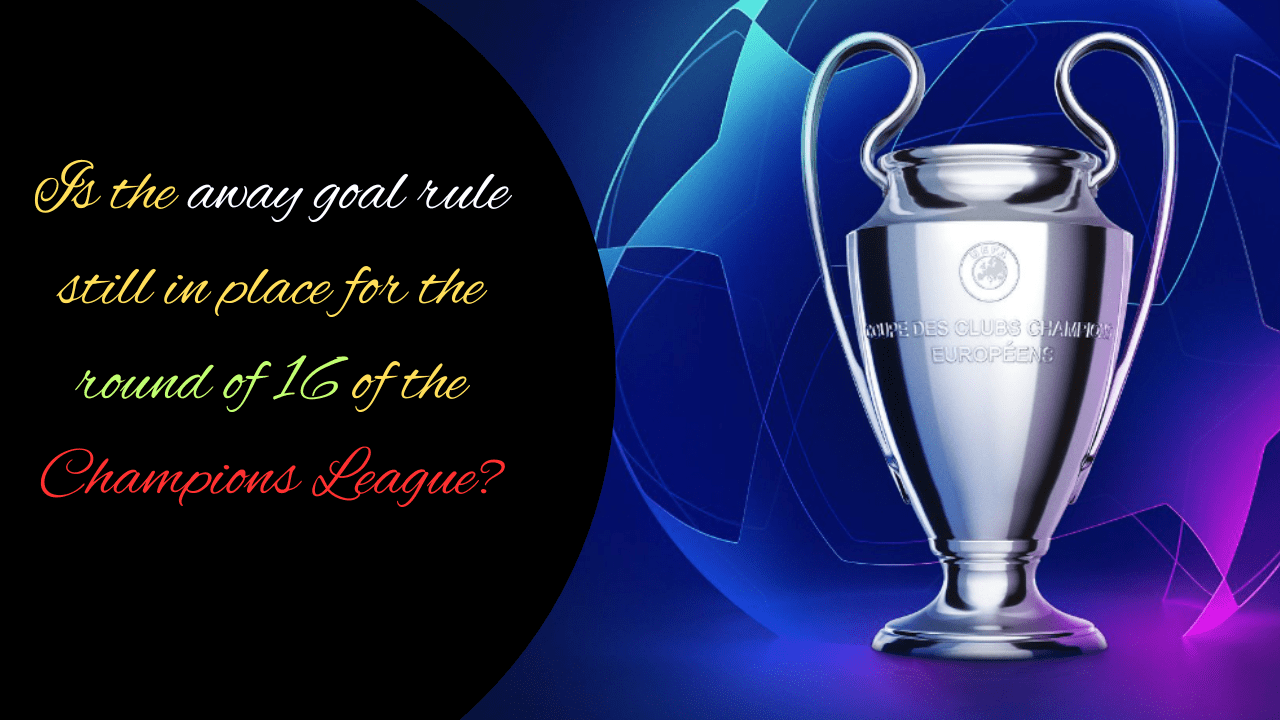Football is a diverse sport. Since it was first defined, the game’s rulebook has undergone a lot of revisions, and it still evolves. Some coaches think there are problems with the away goals rule, so UEFA has chosen a course of action.
The away goals rule has become one of the major talking topics for managers in recent years, and UEFA has decided to stop using it in its two premier club tournaments, the Champions League and Europa League, as of the 2021–22 season.
Before the pivotal games, there will be debate about whether the tournament’s away goal rule still applies because the teams’ pregame routines will alter accordingly.
Table of Contents
What does the away goal rule entail?
The away goals rule is one of three FIFA-approved techniques, along with extra time and penalties, to determine a game’s victor in the event of a tie.
The implementation of the away goals rule makes any goals scored away from home effectively count twice when the scores are tied, as is customary in matches with home and away legs, such as the knockout stage of the Champions League. The team that scores more away goals is therefore declared the winner if the final score after two legs is tied.
Examples of general away goals
First leg: Team A (at home) defeats Team B 1-2 (away)
Second leg score: Team A (away) 0–1 Team B (away)
Because of the away goals rule, Team B advances in the example above.
Team B scored twice away from home compared to Team A’s one away goal, resulting in a tie between the two teams with an overall score of 2-2.
First leg: Home Team A 0–2 Team B (away)
Team B (at home) 0–2 Team A in the second leg (away).
In this case, the final score is also 2-2, but because to the away goals rule, no team advances, hence extra time or penalties must be used to decide the winner.
This is because neither team has an advantage because both teams scored the same number of goals away from their homes.
Initial leg: Team A (at home) 2-3 Team B (away)
Second leg score: Team A (away) 0–1 Team B (away)
In this case, Team B scores the winning goal to break the tie.
Even though the clubs are tied 3-3 overall, Team B has scored three goals compared to Team A’s one away from home.
When was the away goals rule put into place?
The 1965-66 Cup Winners Cup saw the debut of the away goals rule, which has been in use in football for more than 50 years.
It was initially used in a match between the Czech team Dukla Prague and the Hungarian team Budapest Honved in the second round of the competition in November 1965.
Budapest Honved advanced in the 4-4 tie because they scored three goals in Czechoslovakia compared to Dukla’s two goals in Hungary.
The European Cup (now known as the Champions League) was added to it later, and it has since been used in a number of elimination competitions all around the world.
Read more: Klopp Backs Elliott in Starting XI Against Man United
Is the Champions League still using the away goal rule?
In June 2021, UEFA, the organisation that oversees the Champions League (formerly known as the European Cup), abolished the away goal rule. It had been in place since 1956.
Why did the away goals rule get adopted?
The rule’s implementation was intended to encourage teams to attack away from home and to eliminate the necessity for a tiebreaker at a neutral site.
Read more: Ronaldo’s Absence from the Liverpool Match – What We Know.
What caused UEFA to abolish the away goals rule?
The away goals rule would no longer be applied in UEFA’s club tournaments beginning with the 2021–22 season, the organisation said on June 24, 2021.
“The impact of the rule now runs counter to its original purpose as, in fact, it now discourages home teams from attacking, especially in first legs,” UEFA president Aleksander Ceferin said. “They fear conceding a goal that would give their opponents a crucial advantage.”
The away goals system has been criticised for a number of years prior to the 2021 decision, especially when it came to the Champions League.
Arsene Wenger called the regulation “outdated” in 2015 after Monaco eliminated his Arsenal team from the Champions League.
Wenger told reporters, “That should count, maybe after extra time. The purpose of this rule was to encourage teams to attack on the road, however football has advanced since the 1960s, and the importance of the away goal is now excessive.
Data from men’s tournaments since the middle of the 1970s demonstrates a clear trend of constant narrowing of the difference between the percentage of home victories (from 61%-19% to 47%-30%) and the average number of goals per match scored at home-away (from 2.02-0.95 to 1.58-1.15).
Chelsea will host Borussia Dortmund in the first leg of the UEFA Champions League round of 16 tonight, and Benfica will host Club Brugge.
There will be renewed discussion regarding the away goal rule and how it altered the dynamics of games prior to the pivotal UCL matches.

